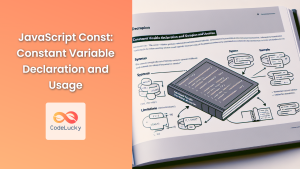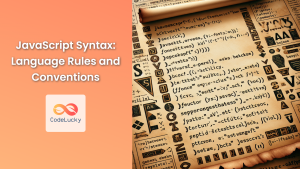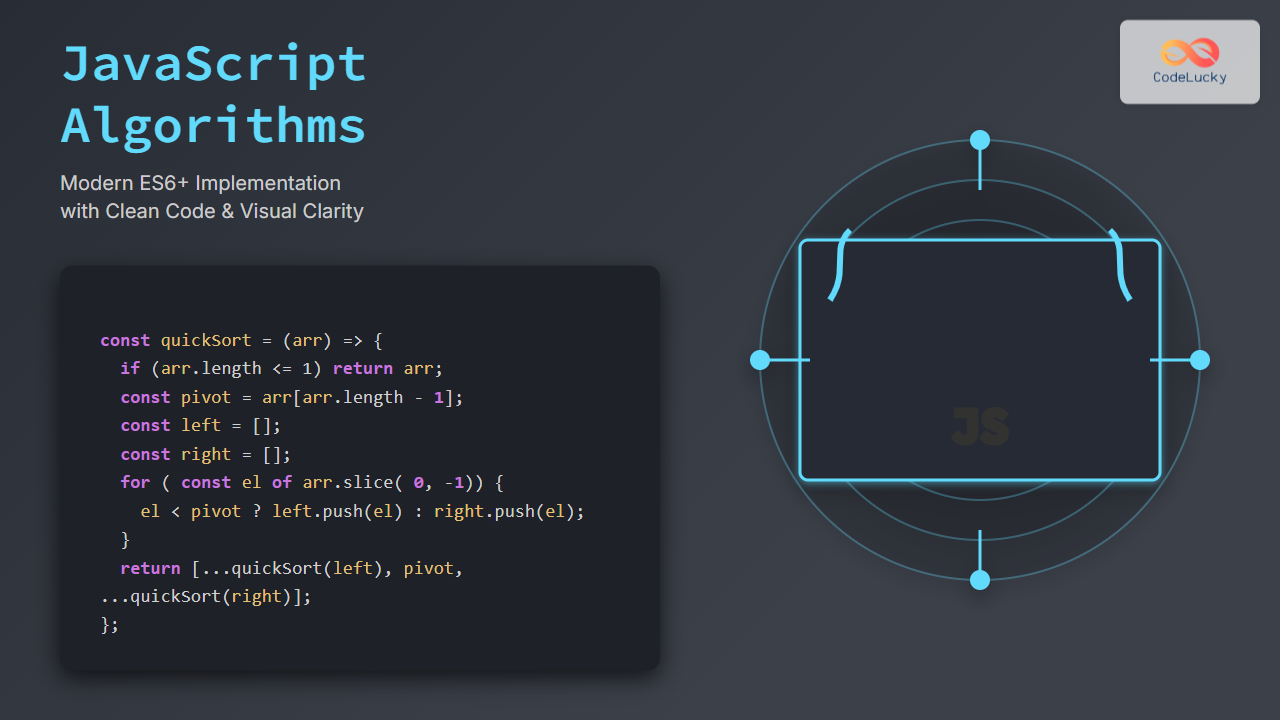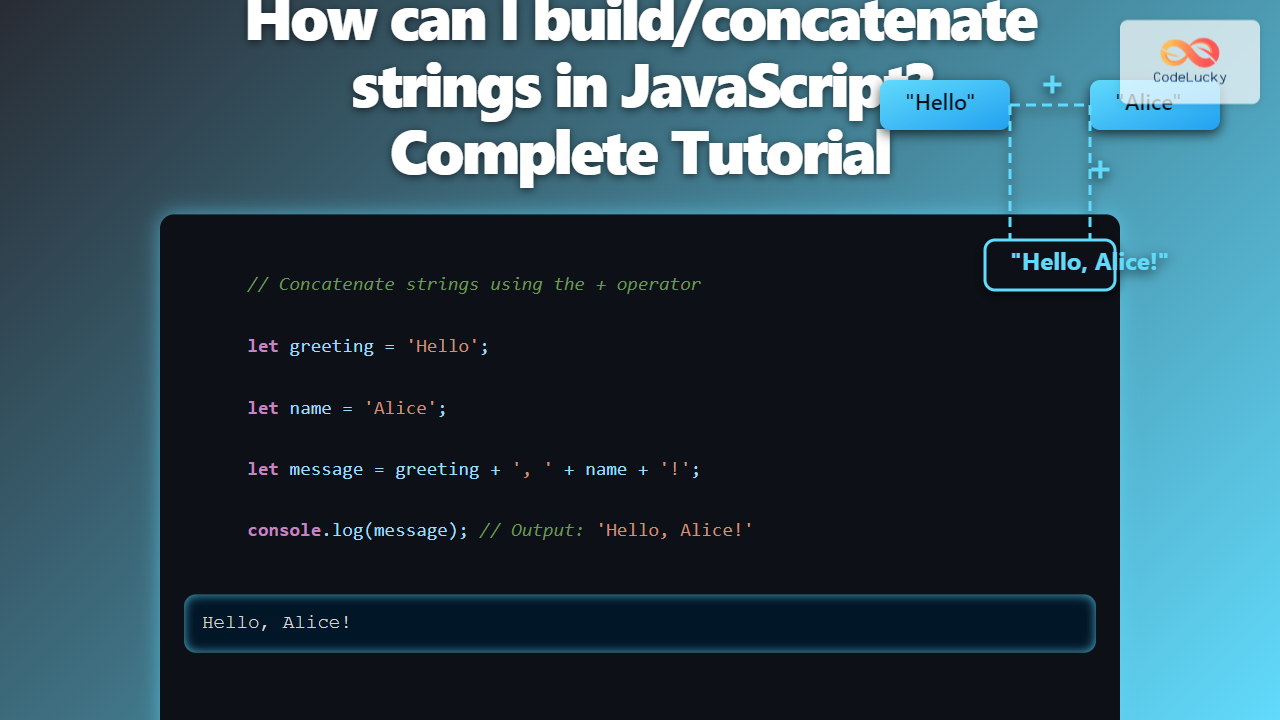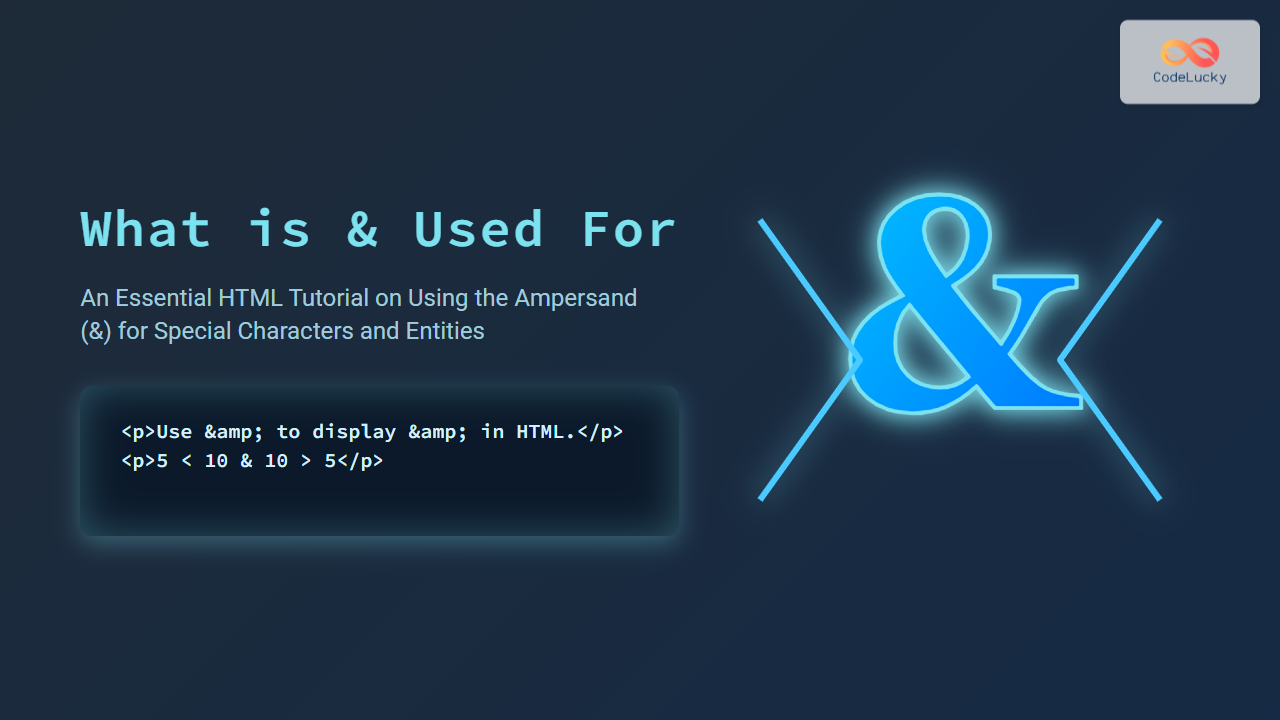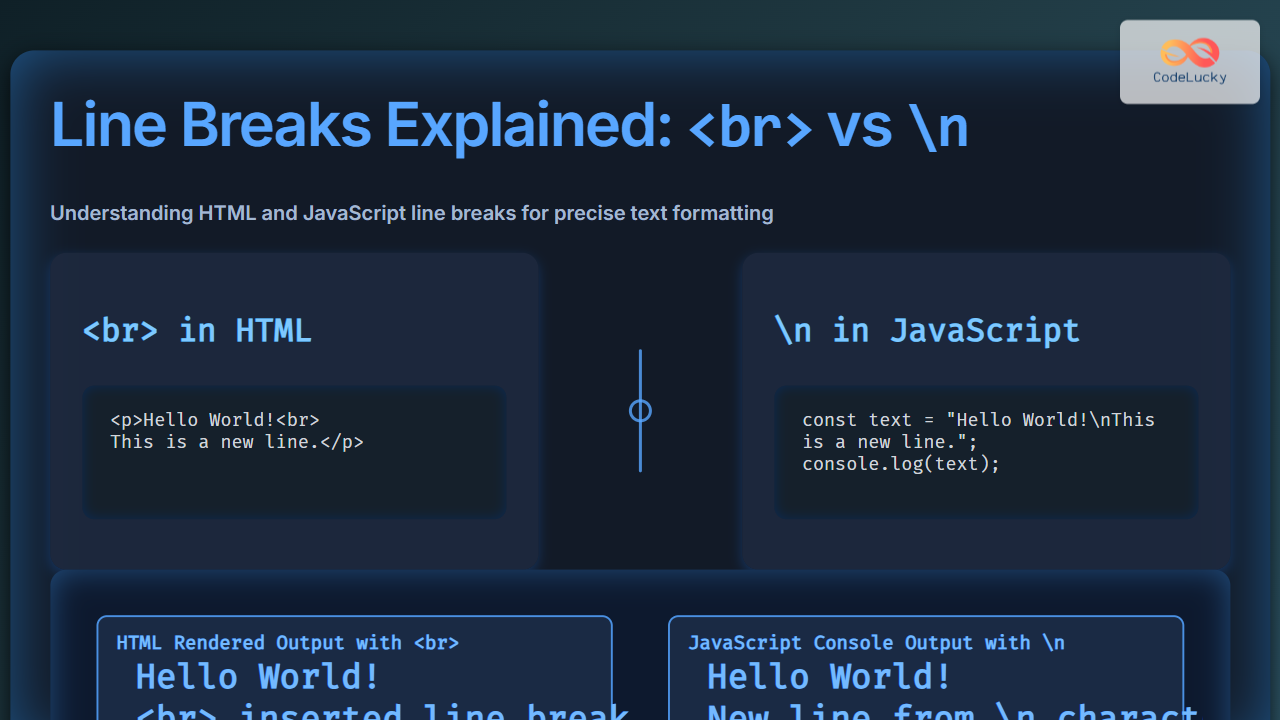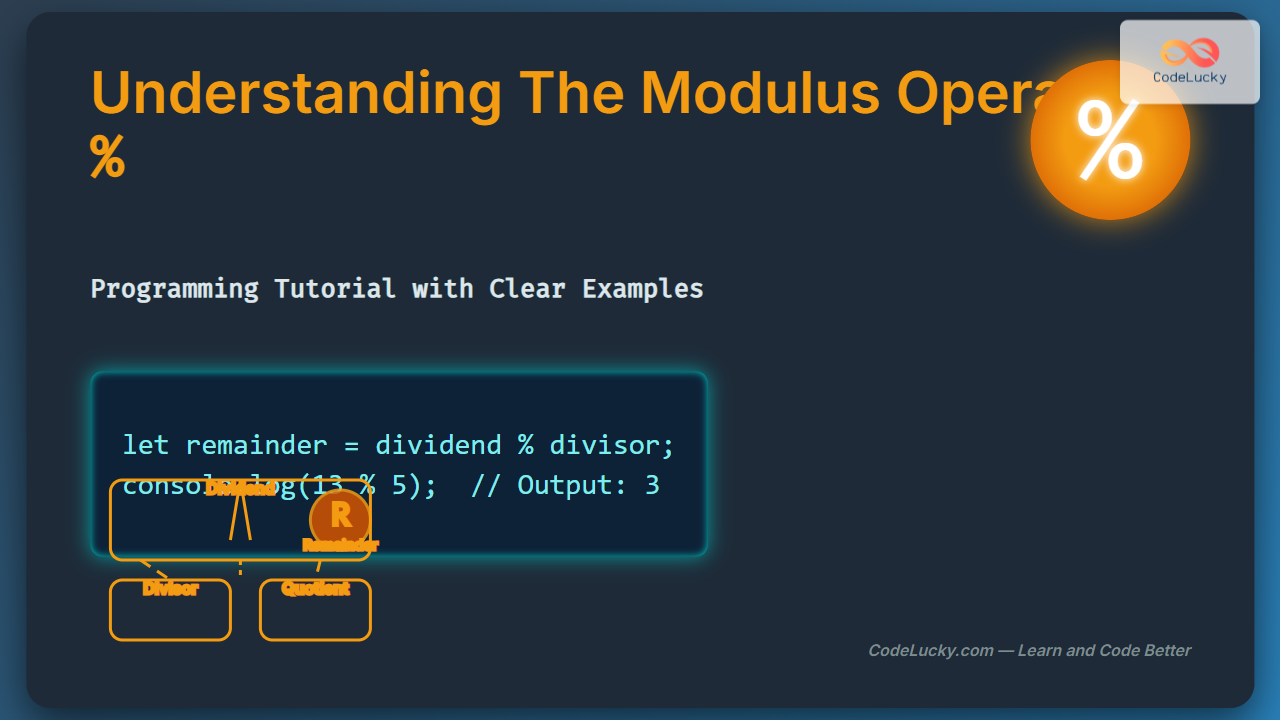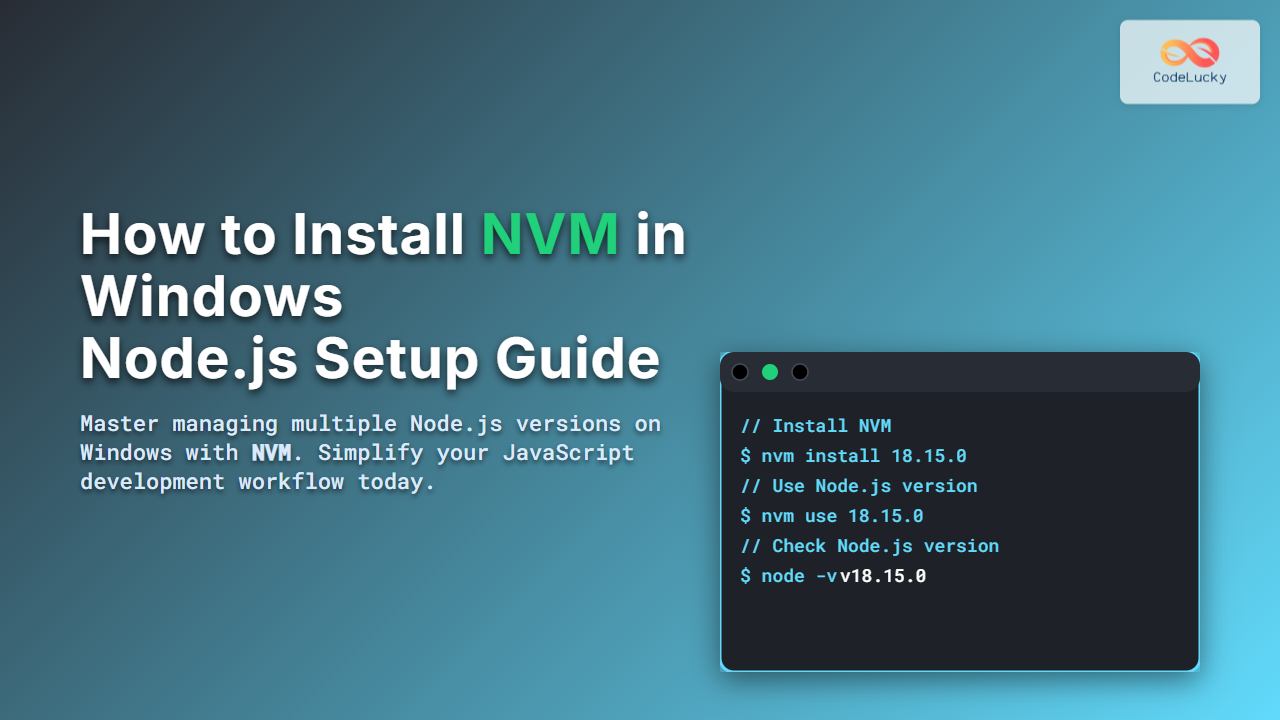JavaScript let Keyword: Declaring Variables in Modern JavaScript
The let keyword in JavaScript is a powerful tool for declaring variables, introduced in ECMAScript 6 (ES6), which provides a more refined way to manage variable scope compared to the traditional var keyword. This guide will explore the syntax, scope, and practical applications of let, helping you write cleaner, more predictable, and error-free JavaScript code.
What is let?
The let keyword is used to declare block-scoped local variables in JavaScript. Unlike var, which declares function-scoped or globally-scoped variables, let restricts the variable’s visibility to the block (a code block enclosed in curly braces {}) in which it is defined. This behavior helps avoid many common JavaScript bugs related to variable hoisting and unexpected variable access.
Purpose of let
The primary purpose of let is to provide a way to declare variables with block scope, which offers several advantages:
- Prevents Accidental Overwriting: Variables declared with
letare confined to their block, preventing unintended modifications in outer scopes. - Reduces Hoisting Issues: Variables declared with
letare not hoisted to the top of their scope, which can make the code more readable and less prone to errors. - Improves Code Clarity: Block scoping makes the code’s logic easier to follow and understand, especially in complex applications.
Syntax of let
The syntax for declaring a variable with the let keyword is straightforward:
let variableName; // Declaring a variable without initialization
let variableName = initialValue; // Declaring and initializing a variable
Here’s a breakdown:
let: The keyword used to declare the variable.variableName: The name of the variable you’re declaring. Follow standard JavaScript naming conventions (e.g., camelCase).initialValue: An optional initial value assigned to the variable.
Key Characteristics of let
Understanding the key characteristics of let is essential for effective use:
| Characteristic | Description |
|---|---|
| **Block Scope** | Variables declared with `let` are only accessible within the block in which they are defined (e.g., inside an `if` statement, a loop, or a function). |
| **No Hoisting** | `let` variables are not hoisted to the top of their scope. They are only accessible after their declaration in the code. |
| **Redeclaration Error** | Attempting to redeclare a variable with `let` in the same scope results in a syntax error. This helps prevent accidental overwriting of variables. |
| **Temporal Dead Zone (TDZ)** | `let` variables exist in a TDZ from the start of their block until their declaration. Accessing a variable within this zone will result in a `ReferenceError`. |
Practical Examples
Let’s dive into some practical examples demonstrating how to use let effectively in various scenarios:
Basic let Declaration
let myVariable_1 = "Hello, let!";
console.log(myVariable_1); // Output: Hello, let!
myVariable_1 = "New value";
console.log(myVariable_1); // Output: New value
let in Block Scope
function exampleFunction_1() {
if (true) {
let blockVariable_1 = "I am inside the block";
console.log(blockVariable_1); // Output: I am inside the block
}
// console.log(blockVariable_1); // Error! blockVariable_1 is not defined outside the block
}
exampleFunction_1();
let in Loops
for (let i_1 = 0; i_1 < 5; i_1++) {
console.log(i_1); // Output: 0, 1, 2, 3, 4
}
// console.log(i_1); // Error! i_1 is not defined outside the loop
let and Redeclaration
let myVariable_2 = "Initial value";
// let myVariable_2 = "Trying to redeclare"; // Error! Identifier 'myVariable_2' has already been declared
Note: Trying to redeclare a variable with let in the same scope will result in an error. ⚠️
let and Temporal Dead Zone (TDZ)
function exampleFunction_2() {
// console.log(myVariable_3); // Error! Cannot access 'myVariable_3' before initialization
let myVariable_3 = "Declared later";
console.log(myVariable_3); // Output: Declared later
}
exampleFunction_2();
let vs var
A common question is when to use let instead of var. Here’s a quick comparison:
| Feature | `let` | `var` |
|---|---|---|
| **Scope** | Block-scoped | Function-scoped or global-scoped |
| **Hoisting** | Not hoisted (TDZ) | Hoisted to the top of the scope |
| **Redeclaration** | Not allowed in the same scope | Allowed (can lead to overwriting) |
| **Usage** | Preferred for modern JavaScript | Legacy, generally discouraged |
Note: In modern JavaScript, it’s generally recommended to use let for variable declarations unless you have specific reasons to use var. ✅
Example comparing let and var
function exampleFunction_3() {
var varVariable_1 = "var outside block";
if (true) {
var varVariable_1 = "var inside block"; // var is function scoped, it will overwrite previous varVariable_1.
let letVariable_1 = "let inside block"; // let is block scoped.
console.log(varVariable_1) // Output: var inside block
console.log(letVariable_1) // Output: let inside block
}
console.log(varVariable_1) // Output: var inside block
// console.log(letVariable_1); // Error! letVariable_1 is not defined
}
exampleFunction_3();
Best Practices for Using let
To effectively leverage the power of let, consider these best practices:
- Use
letfor Variables that Change: If a variable will be reassigned, declare it withlet. - Declare Variables Within the Smallest Possible Scope: Keep variable scope as narrow as possible to avoid unintended side effects.
- Avoid Using
var: In modern JavaScript, favorletandconstovervarto improve code clarity and prevent common bugs. - Always Initialize Variables: Provide an initial value for variables whenever possible to enhance code readability.
Real-World Applications of let
The let keyword is indispensable in modern JavaScript development:
- Loop Counters: Used in
forandwhileloops to manage loop iterations. - Conditional Blocks: Used in
ifandelseblocks to handle temporary variables within conditional logic. - Event Handling: Used in event listeners to store and access event data.
- Function Scope: Used to create variables that are scoped to a specific function.
- Module Scope: Used to create variables that are scoped to a JavaScript module.
Browser Support
The let keyword is supported by all modern web browsers.
Note: Always test your code across different browsers and devices to ensure a consistent user experience. 🧐
Conclusion
The let keyword is a fundamental part of modern JavaScript, offering block-scoped variable declarations that improve code clarity, prevent accidental overwriting, and reduce common errors. By understanding the characteristics of let and adopting best practices, you can write more robust and maintainable JavaScript code. This comprehensive guide should give you the necessary knowledge to effectively use the let keyword in your web development projects.







